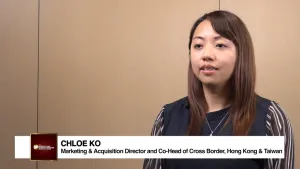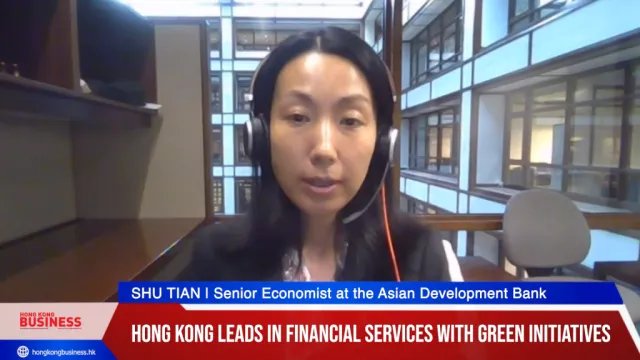
Achieving board diversity: It takes more than giving additional seats to women
Heidrick and Struggles CEO David Hui said the first step to diversity is identifying one's business objectives.
Contrary to what most headlines say, achieving board diversity is not a numbers game of how many seats should be given to women or the young, but rather a fight to eliminate a "groupthink" mindset or thinking and perceiving things the same way amongst executives.
To achieve such a goal, Heidrick and Struggles CEO David Hui said a company's first move should be to identify issues it wishes to resolve, adding that diverse boards are formed not just for the "sake of diversity," but also for the company to perform better.
"There's a lot of different ways and lots of different actions you can take, but you have to have a roadmap or a plan around why you take those actions and what you want to see as a result of those actions," Hui told Hong Kong Business.
In the consumer industry, 40% of board seats are going to women and Hui said this is likely because women are at least 50% of the industry's potential customers.
"If you're in the consumer industry, and you're not recognising that half of your customers are females, that's a pretty risky approach," Hui added.
Once the problem is identified, the next step is to look at candidates who can address these problems.
Experience as the first lens
Based on the Heidrick and Struggles study, only 30% of board seats are given to women in Hong Kong. The reason for this is partly due to experience, according to Hui.
Work experience is an important factor in creating a diverse board and is usually the "first lens" of companies when looking to hire or appoint board members.
In the industrial industry, for example, not many females have experience in the industry.
"If you were to look into auto manufacturing and car manufacturing, how many women have 30 years of experience in these industries? So if that was your first lens, you automatically restrict the pool of available candidates," said Hui.
Hui added the candidates for board directors are assessed by two filters: having an equivalent level of experience, if not more than those who they will be supervising, and somebody who can devote time to the company.
"Generally that the more experienced people are going to be older, and more likely, therefore, to be closer to retiring or fully retired already. The benefit of this is that these are people who might have the time and the ability to commit to the role," he said.
"Board work is becoming increasingly onerous, both in terms of complexity and time required. So inevitably, senior executives who are still working full time will generally opt out of the selection process almost by self-selection, because existing employers are reluctant to allow or accept that their senior executives can devote time to another company's interests," he added
Historically, Hui said females who fit these criteria are "few and far between."
This is why Hui said companies should look at experience in other ways like the teams they have been a part of or even their life experiences.
"We find that board directors who have different life experiences can really look at problems and look at solutions differently," he said.
"People who've worked very much in team environments, versus those who've worked in fewer team environments, will tend to lead and tend to comment on leadership in very different ways," he added.
In the past 12 to 18 months, Hui said companies are also giving more seats to people who have digital experience given the rise of digital transformation across all industries.
"We see that a lot of women who are being placed on boards have experience in that sense -- —social media, digital security, cybersecurity," Hui added.
Scarce experienced directors
According to a study by Heidrick and Struggles, 53% of board seats in Hong Kong go to directors with no public board experience.
Hui said one of the reasons why there's a "scarcity" in the supply of experienced directors is because the recommended number of boards a director can serve has been downgraded to four for 10 plus by Hong Kong Exchange.
"More companies need more independent directors, therefore, they have to find more inexperienced board directors," Hui said.
Inexperienced, however, does not mean these directors lack work experience, it only means that these individuals being appointed have not sat on a board before for a public company.
"In that sense, you can have very experienced people in work and life, but who've never sat on a regulated board before. So there are things that people need to learn, there are cadences that they need to be comfortable with," Hui said.
"Companies should be very aware of how they should onboard and what they need to do to onboard better," he added.
Improving numbers
Hui said the number of women in boardrooms will likely rise especially with increasing regulatory and stakeholder pressure.
According to Hui, companies listed on the Hong Kong Exchange are now recommended to have at least one female director by 2024.
Companies that do not have a female director will be asked to explain why.
"It's not a formal quota yet, but you know, we can see that if the situation doesn't get better, or, the numbers don't improve, I'm sure that's where we'll head," he said.
Hui, however, emphasised that companies must focus on the performance of their board rather than just numbers.
"We're on a journey to achieve more diversity. The needle is moving, but we must think about it from a performance and output perspective. What would be a win for Hong Kong companies is diverse boards helping companies perform better. If we can show that that is the case, then more companies will have diverse boards," Hui said.
"I think there will undoubtedly be a push to get more directors. But I think that the push must not disguise and must not move away from the need for the performance of the directors to improve as well," he said.



















 Advertise
Advertise






